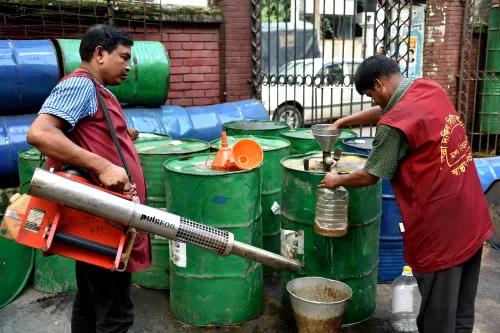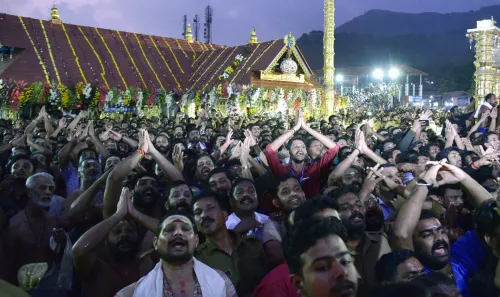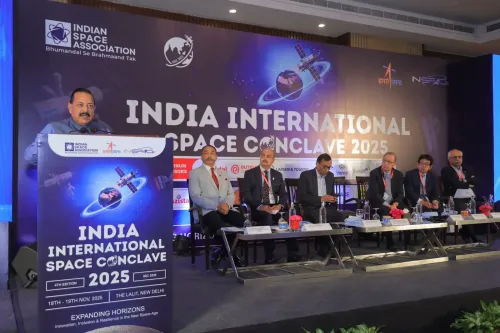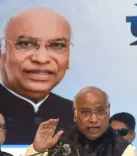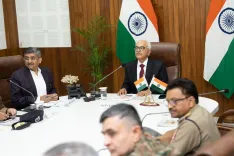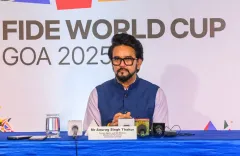Unity in Action: PM Modi Celebrates India's Fight Against Malaria
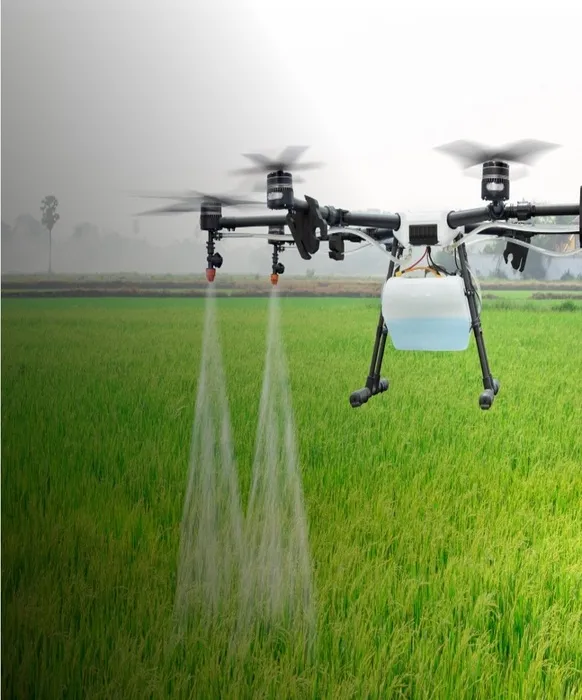
Synopsis
Key Takeaways
- Significant reduction in malaria cases and deaths.
- India's goal of zero malaria cases by 2027.
- Community participation is crucial for success.
- Intensified Malaria Elimination Project targets high-burden areas.
- Awareness and prevention strategies are essential.
New Delhi, April 25 (NationPress) Prime Minister Narendra Modi, on World Malaria Day, commended the citizens for their unified efforts in combating the mosquito-borne illness.
Observed globally on April 25, the theme for 2025, "Malaria Ends With Us: Reinvest, Reimagine, Reignite", emphasizes the need for renewed international commitment to eradicate malaria through innovation, collaboration, and continuous action.
Once recognized as one of the countries with the highest malaria burden, India has made significant strides, achieving a 69% reduction in cases and a 68% decrease in malaria-related deaths between 2017 and 2023.
This progress is attributed to persistent political will, grassroots engagement, and targeted interventions.
In 2024, India also exited the WHO’s High Burden to High Impact (HBHI) group, marking a significant global achievement.
PM Modi remarked, "Malaria has posed a major challenge to humanity for four millennia. Even during our Independence, it remained one of our foremost health issues."
He further stated, "I am pleased to acknowledge that our citizens have unitedly and vigorously addressed this challenge."
From 2015 to 2023, India witnessed an 80.5% reduction in malaria cases, with a 78.38% decline in fatalities during the same timeframe.
In 2023, approximately 122 districts across the nation reported zero malaria cases, reflecting a strong localized impact.
India aims to achieve zero indigenous malaria cases by 2027 and complete elimination by 2030.
To reach this goal, the nation has implemented a comprehensive, evidence-based strategy.
This approach combines disease management, vector control, and community-driven initiatives to ensure enduring impact and inclusive health coverage.
The Intensified Malaria Elimination Project (IMEP)-3 focuses on 159 high-burden districts to expedite malaria elimination in at-risk regions.
The national "Test, Treat, Track" strategy guarantees early detection and prompt treatment.
Malaria services have also been integrated under Ayushman Bharat, Ayushman Arogya Mandirs, and Community Health Officers.
Union Minister of State for Health and Family Welfare, Anupriya Singh Patel, stated that the government is consistently working towards the vision of a 'Malaria Free India'.
On World Malaria Day, Patel emphasized the collective responsibility to raise awareness about this deadly disease and to make unified efforts for its eradication.
She added, "The Government of India is persistently striving for a 'Malaria Free India'. Let us all work together to make this campaign a triumph."
Malaria is a severe illness caused by parasites transmitted to humans via bites from infected female Anopheles mosquitoes. Nevertheless, it is preventable and treatable.
To avert the disease, Patel encouraged everyone to maintain cleanliness, protect themselves from mosquitoes, wear full-sleeved clothing, utilize mosquito nets and repellents, and seek immediate medical attention if experiencing fever.

